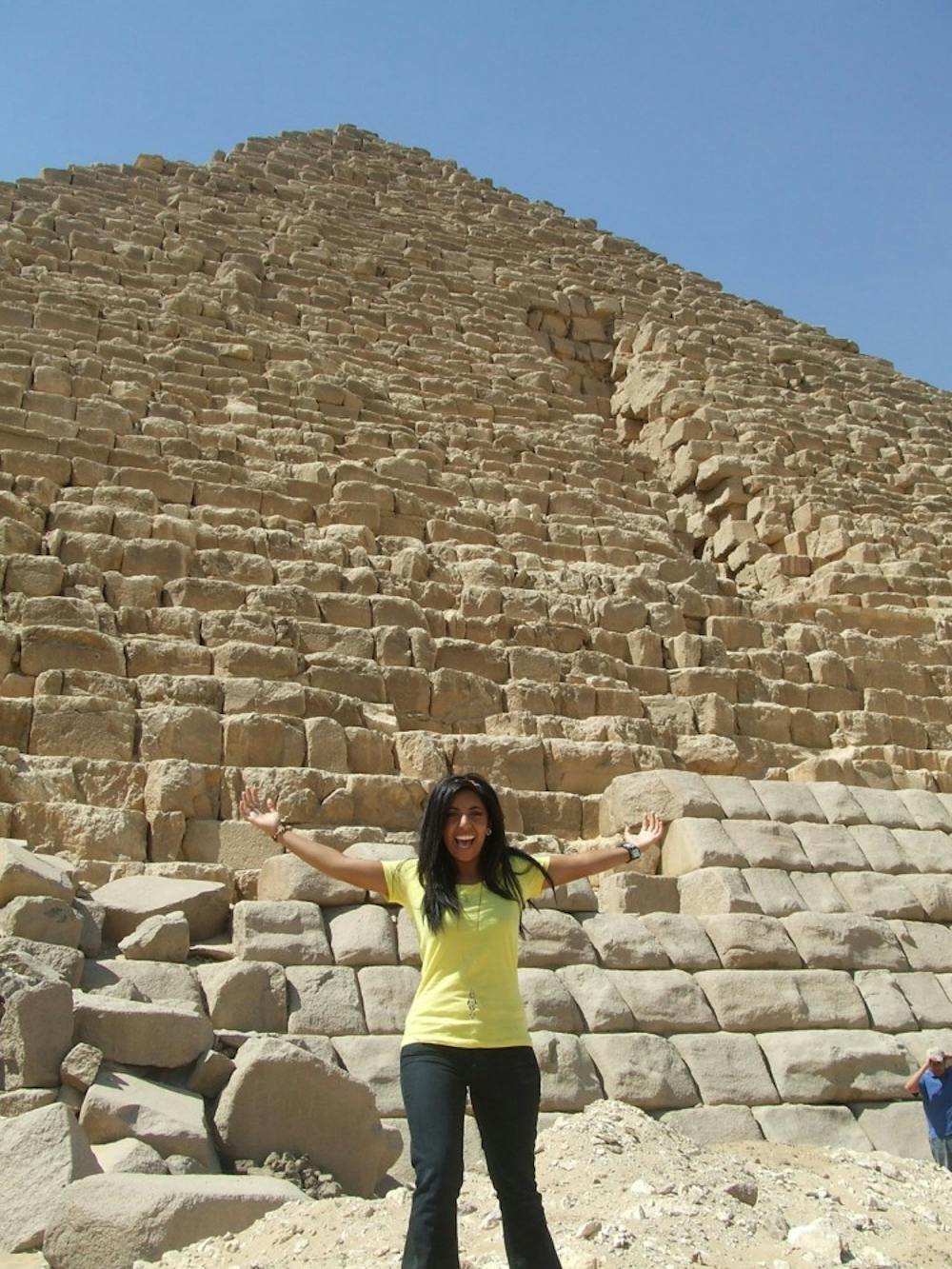Inside a Tempe bagel shop on a Saturday afternoon, an Egyptian-American girl is eating a sandwich filled with eggs, Swiss cheese and asparagus. She sips on water to wash it down. After walking in Tempe Town Lake's annual diversity-promoting Regional Unity Walk, she had to refuel.
Diana Asaad, a business sustainability junior, was born in America after her parents emigrated from Egypt more than 20 years ago. The reasons her family came to the U.S. are the same reasons why some Arabs have recently been protesting their governments — high unemployment rates, high-priced foods and a totalitarian rule over their societies.
“There’s more opportunity here,” Asaad says, explaining her parents' decision to leave Egypt.
In 2009 Asaad went to Cairo on a missionary trip, using the opportunity to visit her extended family as well. She wasn’t thinking of politics or Hosni Mubarak, but she sensed resentment toward the president during her stay.
“I wasn’t fearful at all,” she says about a then-calm Cairo. “I kind of noticed that people were bitter [toward] Hosni Mubarak at the time when I went bowling with my cousins.”
She and her friends posed and took pictures inside the bowling alley, where a portrait of Mubarak hung in the background. The portrait came out in one of the pictures.
“Oh, no, delete that,” Asaad recalls her friends and cousins saying. “We’ll take another picture.”
That budding resentment became a national protest two years later, when the Egyptian people rose to express their dissatisfaction with Mubarak.
In the early days of the Egyptian protests, Asaad and her parents kept in touch with their extended family through Skype or phone calls. But in late January, the Internet and phone service shut off in Egypt. Asaad’s Cairo family stayed locked in and only ventured out when necessary.
It was during the communication freeze that Asaad’s mother worried the most.
“She just kept dialing until the calls would get through,” she says. When she finally broke through, the family “said they were OK. But you could hear gunshots in the background.”
An image of a woman wrapping her hands around the face of an Egyptian policeman, pulling him in for a kiss on the cheek, showed the world the protests began in a peaceful manner. But within days it turned violent; the image of a woman kissing a soldier faded into men on camels and horses with machetes ramping down the streets.
On Feb. 11, Mubarak resigned after 30 years in power and nearly three weeks of demonstrations.
David Pickus, a professor at Barret, the Honors College, recently organized a teach-in to educate ASU students about the Egyptian uprisings.
This is a historical moment for the Middle East and the world, he said. Before the revolution in Tunisia, an Arab leader had not been thrown out through a democratic uprising. That was in January, when protesters ousted President Zine el-Abidine Ben Ali by demonstrating in the streets for weeks. After witnessing the success of the Tunisian people, Egyptians adapted the same strategy.
Throughout the protests, Asaad could only hope for the well-being of her family; now, she worries about who is going to take power of the volatile country. Asaad, a Coptic Christian, hopes that others of her faith won’t be discriminated against in Egypt even more.
"It's great that the Egyptian population has finally taken a stand for reform, yet I am unsure as to how it will all turn out since there isn't a real structure currently put in place," she says. "Some Egyptians are still fearful of the Muslim Brotherhood taking over."
Reach the reporter at uriel.garcia@asu.edu





